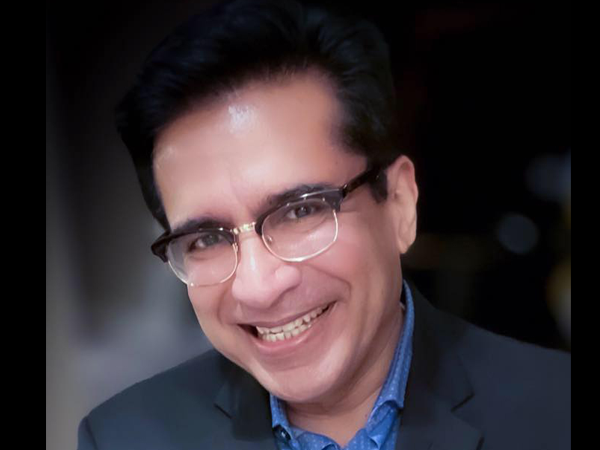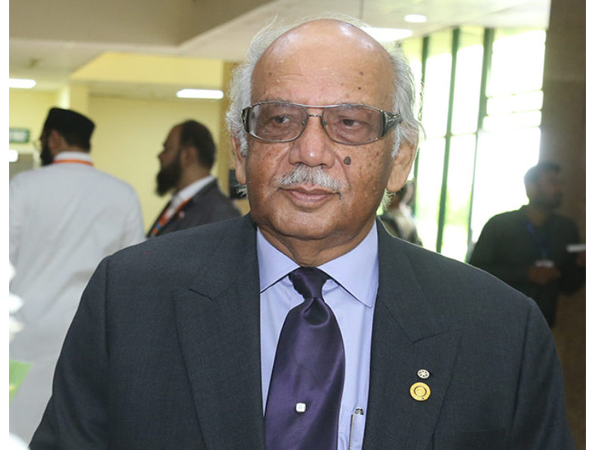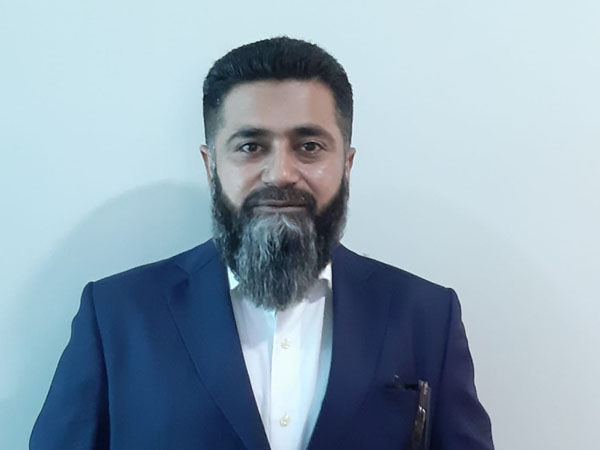Dr. RASHID CHOTANI
Global Medical Director
ABML|IEM Health joint venture
Dr. Rashid Ahmed Chotani, is the recipient of the 2016 “NATO Scientific Achievement Award for Counterterrorism,” in 2020 was recognized for his efforts on COVID-19 globally and listed on the Pakistan Foreign Minister’s “2020 Honor List,” and in 2022 he received the Pride of Pakistan Medal of Honor from the President of Pakistan for his humanitarian work in Pakistan. He has spent over 25 years providing public health, medical diplomacy, biodefense, infectious disease epidemiology (with a focus on influenza, SARS-CoV, MERS-CoV, SARS CoV-2, zika, Ebola, CCHF, dengue etc.), and emergency & disaster management expertise to public agencies, private industry, academia and non-profits; nationally and internationally. He has served in leadership positions as the Chief Scientist at the US Department of Defense, Professor at Johns Hopkins Schools of Medicine and Public Health, Uniformed Services University, George Washington University and University of Nebraska Medical Center and Global Medical Director for COVID-19 response.
The principles of health for all and health as a basic human right was embedded in him at a very young age by his late father (Dr. A. R. Chotani) who was a public health physician and mentors Neal Ball (founder of American Refugee Committee) and, late Dr. D. A. Henderson (head of WHO Smallpox eradication campaign). It was his father, who enlightened him when he paid young kids to solicit their friends to get childhood vaccinations in the slums of Karachi, Pakistan. His father served the Cement Hospital for over 45 years spending close to thirty percent of his time there without any salary or compensation. This inspired Dr. Chotani to return to Karachi from the US after completing his medical training in 1993 where he led the charge to convert a 65-bed obstetric hospital (Cement Hospital) to a 250-bed general hospital (Kharadar General Hospital), in one of the poorest areas of Karachi. In 1995, he returned to the US to join Johns Hopkins School of Public Health (JHSPH) to get advanced training. While a student at JHSPH he co-founded Pakistan Public Health Foundation (PPHF) to assist and implement public health programs and projects in Pakistan. Among other things PPHF project provided critical medicine for the first time to Fatima Jinnah Hospital during a major Crimean-Congo Haemorrhagic Fever (CCHF) outbreak in 1999, resulting in saving a lot of lives and introducing a intervention that became a standard of treatment. Later, he assisted and provided his expertise to the Pakistan National Institutes of Health and Pakistan Armed Forces Institute of Pathology to investigate potential Anthrax threats and exposure. Moreover, he worked diligently to convince Pakistani lawmakers to eliminate leaded gasoline from Pakistan which were implemented resulting in Pakistan becoming one of the first countries to be lead-free.
In 2000, he became a tenure-track professor at the Johns Hopkins School of Medicine and Public Health. Here he established the Global Infectious Disease Surveillance & Alert System. The focus was to evaluate the endemicity of circulating pathogens in developing and data-poor reporting countries, and assisting and enhancing infectious disease surveillance by developing indigenous capacity. The same year he went to Pakistan to evaluate the tuberculosis situation at the Afghan refugee camps. Starting in 2002, he collaborated with the National Institutes of Health (NIH) Islamabad and developed their Disease Early Warning System (DEWS). Moreover, he developed a Median Disease Endemic Index (MDEI) by analyzing 5 years on Health Management Information System (HMIS) data collected by the World Health Organization (WHO) sponsored HMIS Cell. This helped identify critical high-risk districts for infectious diseases. In collaboration with the Pakistan Ministry of Health and WHO he developed healthcare educational interventions to decrease endemic and nosocomial transmission of CCHF and investigated the seroprevalence of CCHF in Kali Matu, Baluchistan (the epi-center of CCHF in Pakistan). With US collaborators, he compared the sheep-brain vs. vero-cell line Rabies vaccine efficacy which changed the vaccine policy in Pakistan and identified the geo-spatial distribution of cutaneous vs. visceral leishmaniasis and did extensive work on Dengue prevention. While working on these projects in Pakistan he assisted the Higher Education Commission to develop the university academic promotion system. In 2005, he returned to Pakistan to provide assistance post-earthquake. His GIDSAS program in Pakistan provided critical infectious disease information to WHO and the Pakistan MOH to implement targeted interventions against such diseases.
In the US and internationally, apart from his professional endeavors, he established and led two free clinics that were established at mosques to serve not only Pakistani but all communities from different religious denominations. He has been active in the US democratic process and has worked with Congressional, Senatorial and Presidential Campaigns. He continues to advise US legislators on Pakistan and the US State Department to build bridges between the two nations with a focus on technology transfer, commerce, healthcare and education. Dr. Chotani is a Fellow of the Royal College of Public Health. He earned his MD from the Eugenio Maria de Hostos School of Medicine and holds a Master of Public Health in Epidemiology and Biostatistics & International Health from Johns Hopkins School of Public Health. He successfully completed Fellowships in Vaccine Science, Hospital & Microbiology Epidemiology and Bioinformatics at the Johns Hopkins Schools of Public Health, Medicine and Applied Physics Laboratories-School of Engineering respectfully. Dr. Chotani has authored and co-authored over 50 scientific peer-reviewed papers, 6 book chapters and 2 books. He is a prolific public speaker, having presented more than 30 scientific peer-reviewed papers during his academic career and has spoken on public health and biosecurity interests at over 70 national and international conferences. He was a weekly commentator on Fox Business News between March 2020 to March 2021 on COVID-19. He has served as a board member of American Immigration Council, President of Howard County Muslim Council, Chairperson of the APPNA University Committee and Member of APPNA Advocacy Committee; he continues to server on the Saint Andrews Humanitarian Forum.




